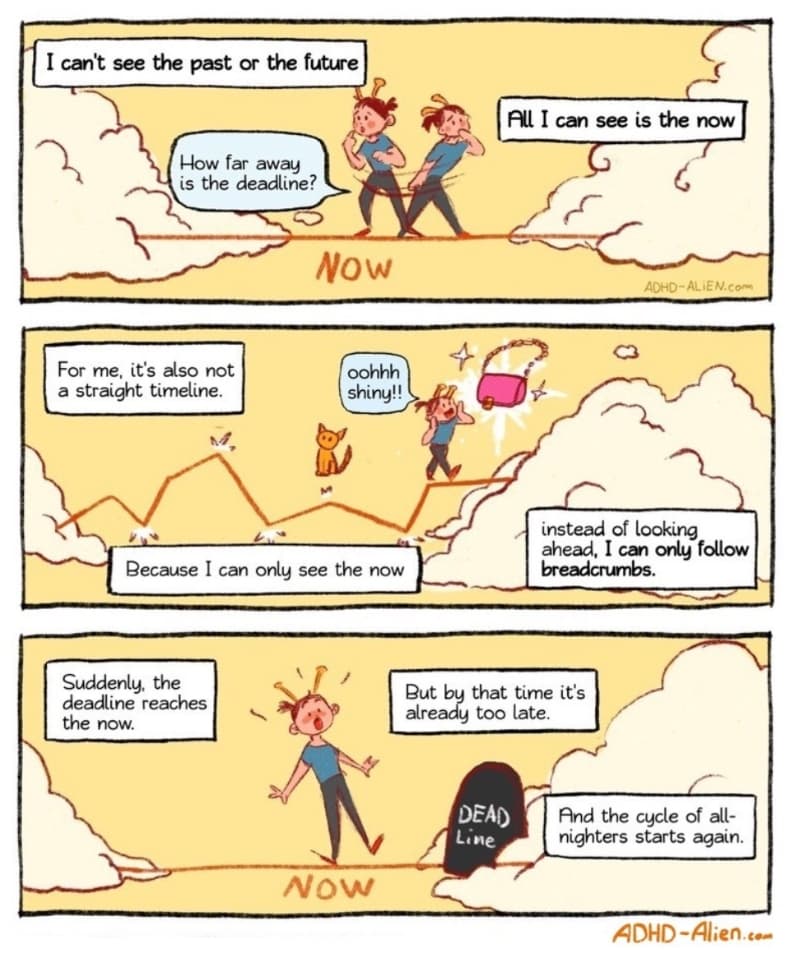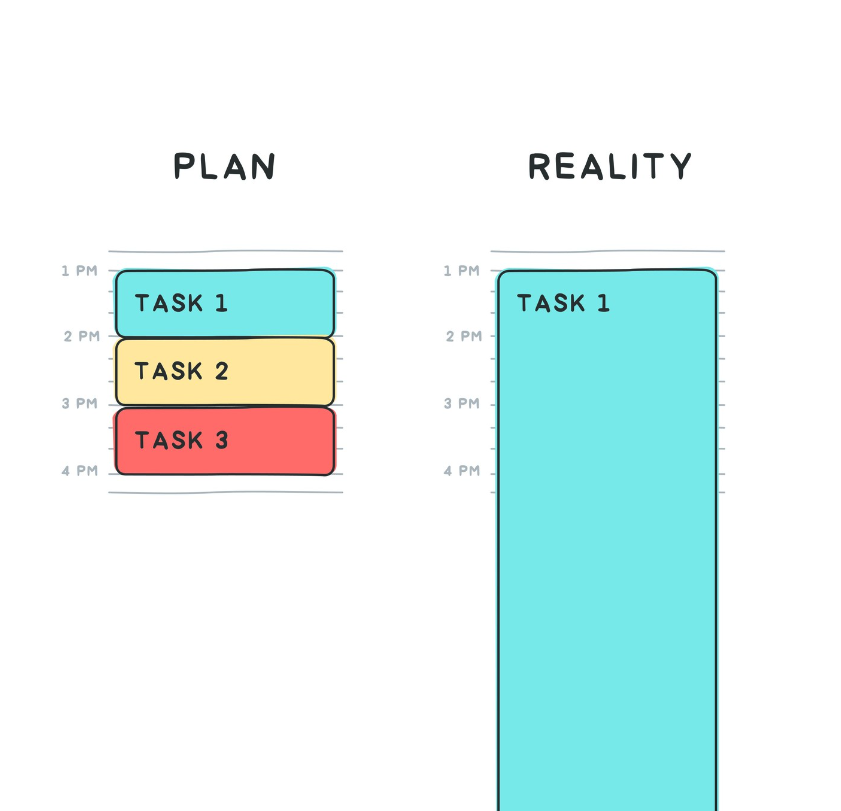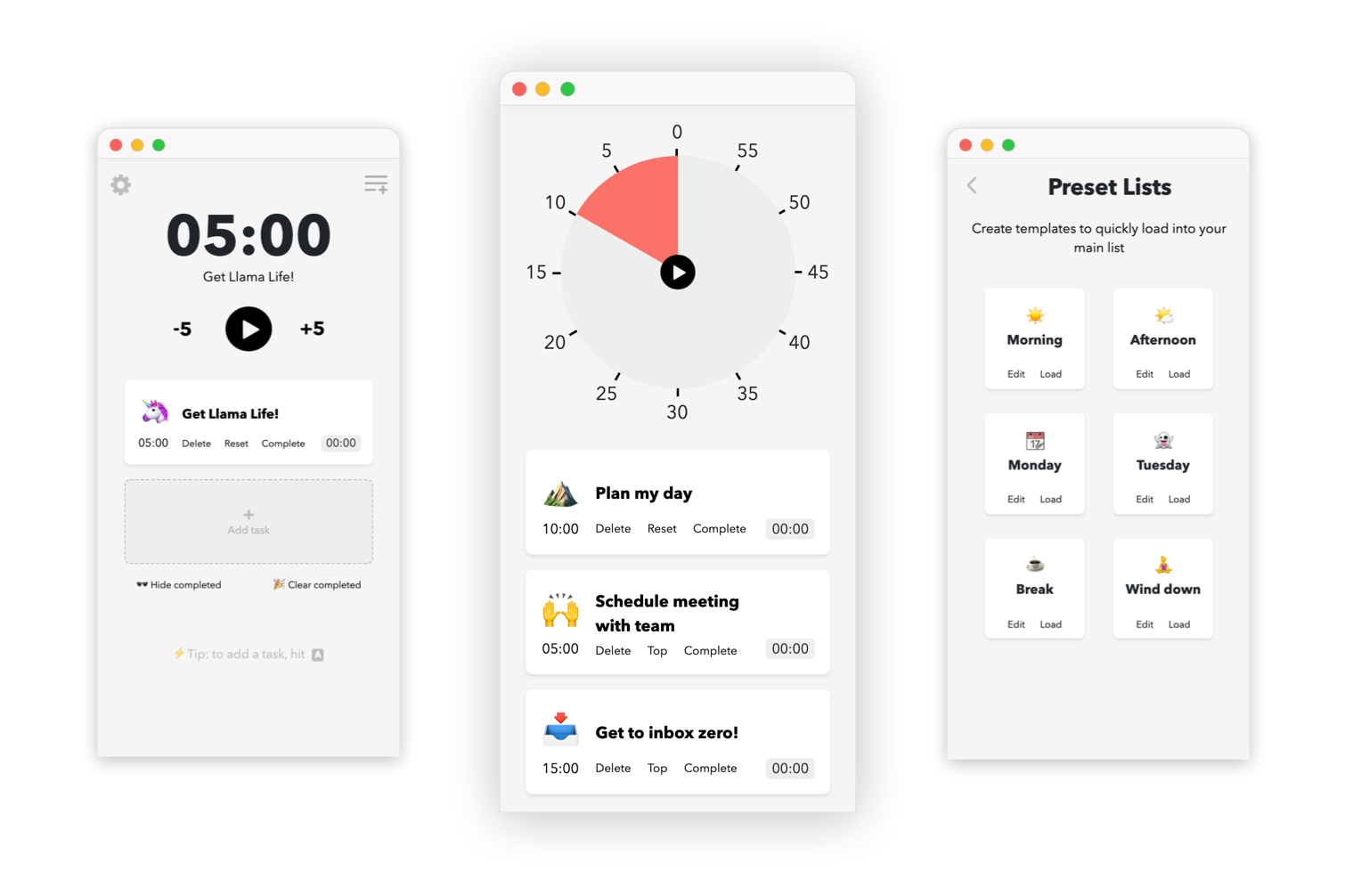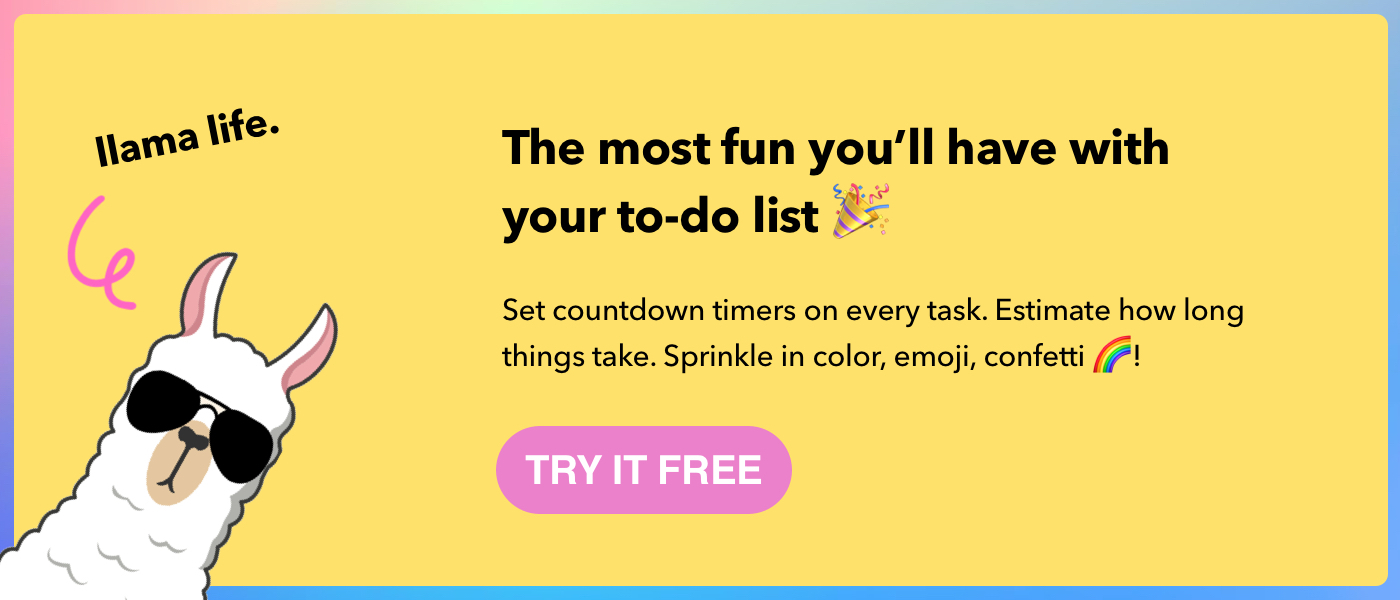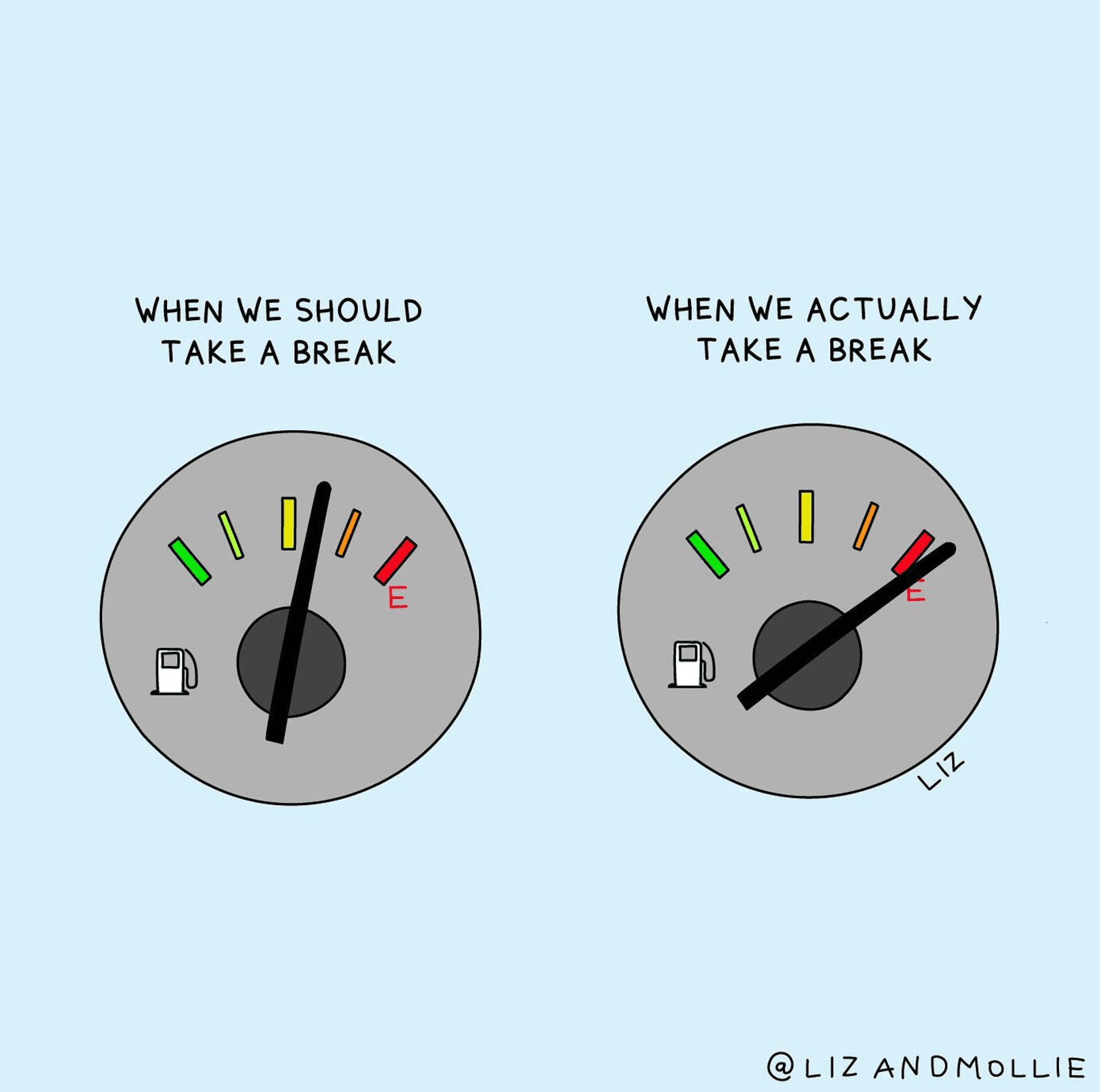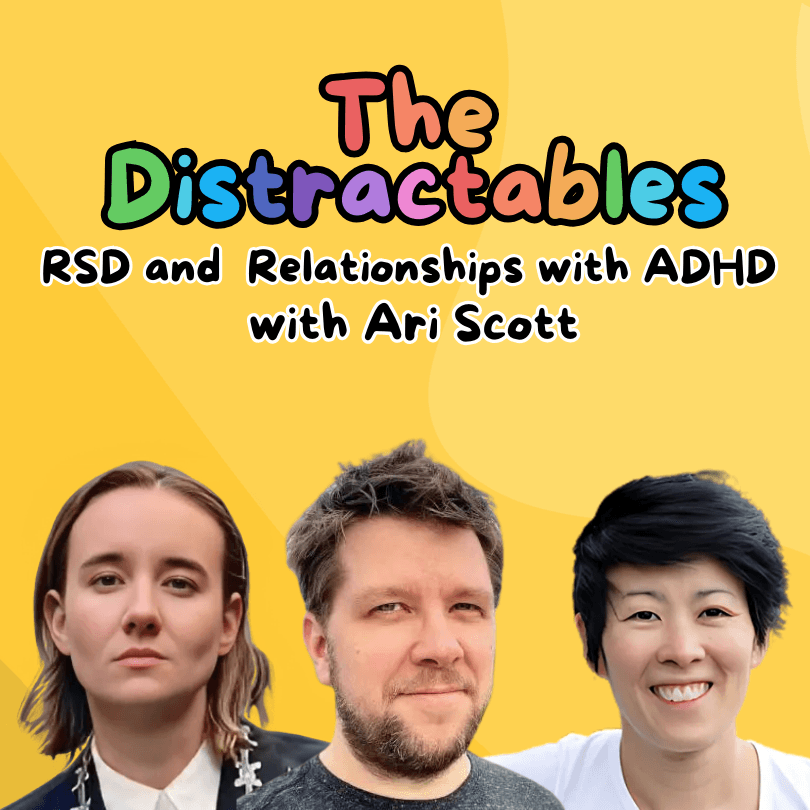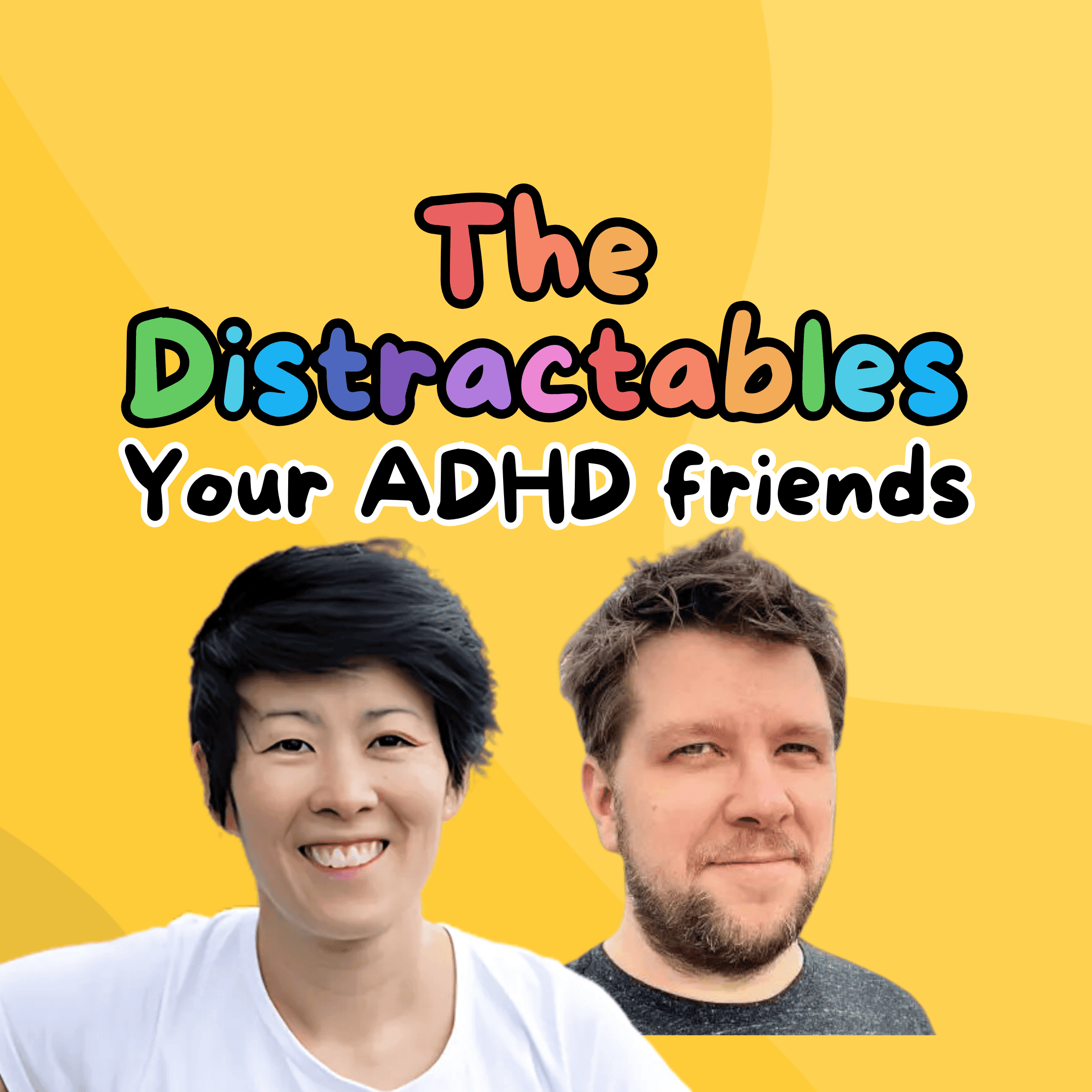One of the biggest unspoken struggles that all ADHDers face? Time blindness.
Source: ADHD Alien
It shows up for me in a few different ways - the first one being that I have no idea how long things take me to complete. None at all. I don’t seem to understand the concept that some things will take me longer than others to complete, I find it pretty much impossible to estimate how long a task will take, and I also feel as if tasks which I *could* get done more quickly end up dragging out because they don’t have a fixed amount of time dedicated to them.
Image credit: Janis Ozolins
It's hard to estimate time for tasks
As you can imagine, this is far from ideal. It means that I usually tend to estimate that *anything* will take me one hour to complete, and account for this amount of time to get it done - no matter whether it is one tiny piece of admin work or writing a whole blog like this one (oops). Surprisingly enough, there are not too many tasks in this world that take exactly one hour to complete, so I am usually left:
a) without enough urgency to motivate myself to actually do the task, or
b) rushing around, typing at a rapid speed, attempting to multi-task and up to my eyeballs in stress. Sigh.
A near sightedness for the future
The second way that time blindness shows up for me is as a “near-sightedness for the future”. By this, I mean that I can’t seem to see a faraway future - I can only visualise a blurry jumbled mess, and only begin to see the future clearly as it becomes millimetres away from smacking me right in the face. So, for example, if a project has a deadline that is still a little while off, I can’t quite comprehend that deadline - I just know that it doesn’t need to be done *now*, feel unable to chip away at it, and will put it off and off and off until the deadline becomes worryingly close.
Perception of an endless amount of time
This leads me to the third and final way that time blindness adds another level of complexity to my ever-chaotic life. Within this blurry, faraway future that my near-sighted brain won’t allow me to bring into focus, I seem to think that I have *endless* time. Since I’m not very good at knowing how long things take me to complete, and since I’m not able to consider all of the other things that I have to get done in the future, that faraway future can feel like an endless pit of time that, “yes, of course, I can fill with another project!” when in reality, I absolutely do not have the capacity.
If you’re an ADHDer reading this article, I imagine that you are probably nodding along in agreement, while potentially also letting out a little sigh. But fear not - I am about to share a few little tips and tricks that I have learnt along the way that act as a lovely new pair of glasses to bring our time blindness into focus.
Tip #1: Time yourself
As we’ve discussed, we’re not very good at estimating how long things take us, so *actually* measuring the time that it takes is a really quick and easy way to gather this data to set us up for more accurate estimations in the future.
Start a spreadsheet of all of the tasks that you do on a regular basis, and the next time you do them, use Llama Life to see how much time you take. If you record this in your spreadsheet over the course of a week, you should have a pretty accurate average length of time for each of your regular tasks, which you can use next time you have to allocate time for those tasks.
Tip #2: Time Block
Once you have these average timings per task, use them to physically block out the time that you need to complete a task in your diary. For example, if you work out that a 1000-word blog takes you 90 minutes to write, the next time you find out that you have a 1000-word blog to write, as soon as the task gets added to your to-do list (this part is vital, I know how forgetful you can be), you can block out a 90-minute chunk of time in your diary to get it done.
This way, you’ll have just the right amount of time to complete it, giving you that perfect sweet spot between urgency and panic, you’re making sure that it *actually* gets done by accounting the time for it straight away, and it will also help with bringing your future capacity into focus because you can physically see how much of your week is blocked out.
Tip #3: Use a digital Visual Timer
Using a visual timer has been a game-changer for me. I have a physical timer with a pretty little coloured face that I use for IRL tasks like cleaning, doing my make-up, and showering, and I use Llama Life, a virtual timer, for anything that I’m doing on my laptop.
If using Tip #2, I’ve time blocked 90 minutes to get my blog written, I can have a 90-minute countdown timer showing on my screen while I am writing. This helps me to make sure that I actually get the task done during the allocated time rather than accidentally letting it drag on, allows me to check in at the halfway point, and keeps me accountable to staying focused because I have a constant reminder of urgency.
These tips might seem fairly simple but, as with most of the things that help our ADHD brains, it is usually the simplest things that help the most! I hope that your time vision will be improved and you’ll be feeling more productive than ever, and I can’t wait to hear how you get on.
Written by Ellie Middleton
Ellie is an advocate for the Austistic and ADHD community, and started the (un)masked community for neurodivergent busy brains.
